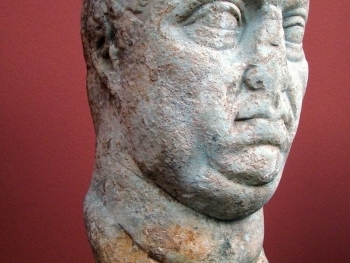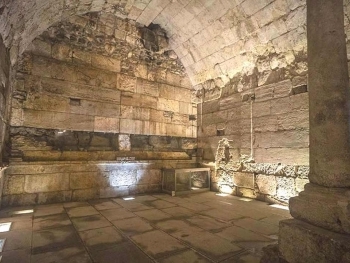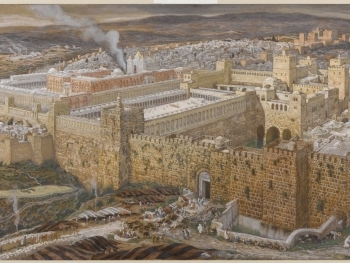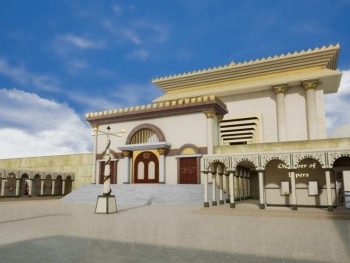The Siege and Destruction of Herod's Temple by the Romans in 70 CE is one of the most significant events in Jewish and Roman history. The temple was a symbol of Jewish identity and had been rebuilt and expanded by King Herod in the first century BCE, making it one of the most magnificent structures in the ancient world. However, the Jewish revolt against Roman rule in 66 CE led to the siege and eventual destruction of the temple by the Romans four years later.
The Siege of Jerusalem began in 70 CE, with the Roman army led by the future emperor Titus laying siege to the city. The siege lasted for several months, and the Roman army eventually breached the walls of the city, allowing them to capture the temple. The temple was then burned, and the treasures inside were looted.
The destruction of the temple had a profound impact on Jewish culture and religion. It was the center of Jewish life, where people gathered to worship, offer sacrifices, and celebrate important festivals. With the destruction of the temple, the Jewish people were left without a central religious institution, and their way of life was forever changed.
The Roman destruction of the temple was not just a military victory but also a symbolic one. The temple was a potent symbol of Jewish resistance to Roman rule, and its destruction was a way for the Romans to show their power and control over the Jewish people. It was also a warning to other cultures and religions that might consider challenging Roman rule.
The destruction of Herod's Temple had long-lasting consequences that are still felt today. It contributed to the diaspora of the Jewish people and the development of Judaism as a religion that did not require a central temple. It also had an impact on the development of Christianity, as the destruction of the temple was seen by some as a fulfillment of the prophecies of Jesus.
In conclusion, the Siege and Destruction of Herod's Temple by the Romans in 70 CE was a pivotal moment in Jewish and Roman history. The temple was a symbol of Jewish identity and resistance, and its destruction had far-reaching consequences. Today, the remnants of the temple serve as a reminder of the profound impact it had on the Jewish people and the ancient world.




